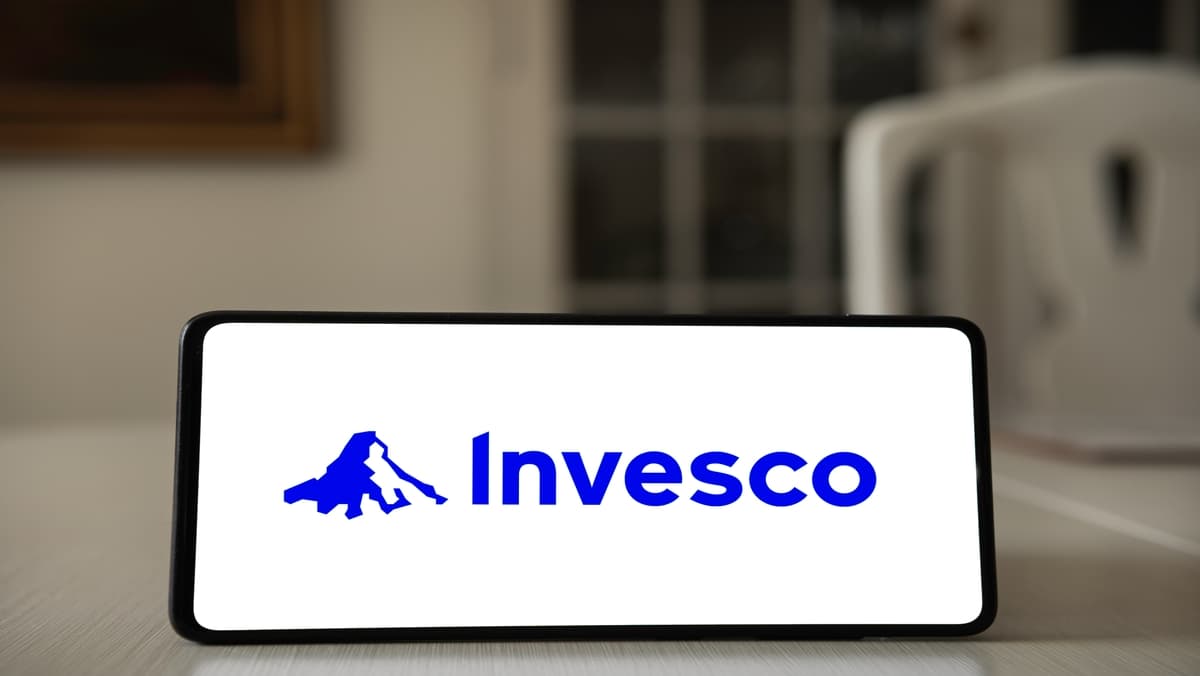
CFDs are complex instruments and come with a high risk of losing money rapidly due to leverage. 75.2% of retail investor accounts lose money when trading CFDs with this provider. You should consider whether you understand how CFDs work and whether you can afford to take the high risk of losing your money.
Wednesday Aug 20 2025 08:20

5 min

Invesco QQQ Trust is down today: the Invesco QQQ Trust (QQQ) is a popular exchange-traded fund that tracks the performance of the Nasdaq-100 Index.
This index includes 100 of the largest non-financial companies listed on the Nasdaq Stock Market, making QQQ a favored choice for those looking to invest in technology and growth sectors. When QQQ experiences a decline, many market participants wonder whether it will rebound. This guide will explore the factors influencing QQQ’s performance and provide insights into potential future movements.
Understanding QQQ and Its Composition
What is QQQ?
The Invesco QQQ Trust aims to reflect the performance of the Nasdaq-100 Index. This index includes a diverse range of industries, primarily focusing on technology, consumer discretionary, and healthcare sectors. The heavy weighting of tech companies like Apple, Microsoft, and Amazon often drives QQQ's price movements.
Importance of Sector Composition
Since QQQ is heavily weighted towards technology, its performance can be significantly impacted by trends within this sector. Economic conditions, interest rates, and technological advancements all play a role in shaping the outlook for these companies.
Analyzing Recent Market Movements
Current Market Sentiment
When QQQ experiences a decline, it is often a reflection of broader market sentiment. Factors such as inflation concerns, interest rate changes, and geopolitical events can lead to increased volatility. Understanding the current market sentiment is crucial for predicting potential recoveries.
Economic Indicators
Key economic indicators, such as employment data, inflation rates, and GDP growth, can influence investor sentiment. If recent data suggests a weakening economy, it may lead to increased selling pressure on QQQ. Conversely, positive economic indicators can boost confidence and lead to a rebound.
Factors Influencing QQQ's Performance
Interest Rates
Interest rates have a significant impact on growth stocks, which dominate the QQQ. When interest rates rise, borrowing costs increase, which can hinder growth prospects for companies reliant on debt financing. Conversely, lower interest rates may encourage investment in growth stocks, potentially driving QQQ higher.
Earnings Reports
Quarterly earnings reports from major companies within the Nasdaq-100 can significantly influence QQQ’s performance. Strong earnings results often lead to increased stock prices, while disappointing results can lead to declines. Monitoring upcoming earnings announcements is essential for understanding potential movements.
Technological Advancements
The tech sector is characterized by rapid innovation. Breakthroughs in technology can lead to increased investor interest and drive stock prices higher. Conversely, if a company fails to keep pace with innovation, it may negatively impact its stock price and, by extension, QQQ.
Strategies for Assessing QQQ's Future Movements
Technical Analysis
While this guide avoids deep technical analysis, utilizing chart patterns and indicators can help traders identify potential entry and exit points. Observing trends and support/resistance levels can provide insights into where QQQ might be headed.
Fundamental Analysis
Evaluating the fundamentals of the companies within QQQ can offer clues about its future performance. Consider factors such as revenue growth, profit margins, and market share. A strong fundamental outlook for the underlying companies may indicate a potential rebound.
Diversification and Risk Management
Investing in QQQ should be part of a diversified portfolio. By spreading investments across various asset classes and sectors, you can mitigate risks associated with market fluctuations. Implementing effective risk management strategies, such as setting stop-loss orders, can help protect your investments.
Long-Term vs. Short-Term Perspectives
Long-Term Outlook
Historically, the technology sector has delivered substantial returns over the long term. If you believe in the long-term growth potential of the companies within QQQ, short-term declines may present buying opportunities. Maintaining a long-term perspective can help weather market volatility.
Short-Term Trading
For those interested in short-term trading, understanding market trends and sentiment is crucial. Quick price movements can create opportunities, but they also come with increased risks. Traders should stay informed about news events and economic data that could impact QQQ.
Staying Informed about Market Developments
Monitoring Economic Reports
Regularly follow economic reports and data releases that influence market conditions. Pay particular attention to reports from the Federal Reserve, as their monetary policy decisions can impact interest rates and market sentiment.
News and Media Analysis
Stay updated on news related to technology and the companies within QQQ. Major developments, such as mergers, acquisitions, and product launches, can significantly affect stock prices and investor sentiment.
Community Insights
Engaging with investment communities and forums can provide diverse perspectives on QQQ and the broader market. Hearing from different viewpoints can help you make more informed decisions.
Conclusion
While QQQ may experience declines, understanding the underlying factors that influence its performance can provide insights into potential recoveries. By analyzing economic indicators, company fundamentals, and market sentiment, you can better navigate the complexities of investing in QQQ. Whether you take a long-term or short-term approach, staying informed and employing sound strategies will enhance your trading experience.
Risk Warning: this article represents only the author’s views and is for reference only. It does not constitute investment advice or financial guidance, nor does it represent the stance of the Markets.com platform.When considering shares, indices, forex (foreign exchange) and commodities for trading and price predictions, remember that trading CFDs involves a significant degree of risk and could result in capital loss.Past performance is not indicative of any future results. This information is provided for informative purposes only and should not be construed to be investment advice. Trading cryptocurrency CFDs and spread bets is restricted for all UK retail clients.